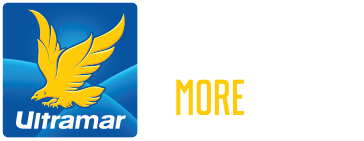BLOG
As temperatures decline, keep safety on your mind
December 10, 2021
As a homeowner, tackling everything that comes with each new season can feel overwhelming, especially when the winter chill has already crept into the air. This article will help you check off the most important tasks on your to-do list to ensure the safety of both the inside and outside of your home. Comfort and safety go hand in hand.

1. Make sure you provide delivery access to your tank.
Make sure that you provide clear access to your equipment after a snow or ice storm.
Clear your driveway and create a safe pathway to your tank so that you don’t miss any of your winter deliveries. Did you know that our delivery drivers have the right to refuse delivery if the conditions are unsafe for heavy vehicles, our equipment or your property?
Please always remove heavy snow and ice from any tanks, gauges, fittings, lines, valves and vents. Always use a broom to clear off your equipment—never use a shovel.
Make sure that you remove any unsafe items surrounding your outdoor equipment, such as heavy ice or snow from the roof or gutters.
If you notice your tank has shifted position, gas lines are bent, broken or damaged, or anything unusual such as rotten egg-smelling odor inside or outside your home, turn off the main gas supply valve on your tank. To turn the valve, turn clockwise, then call your local branch or service centre right away.

2. Be mindful of your consumption
Not sure how much oil you go through during the winter? Keeping tabs on how much oil you use will make it a lot easier to manage your overall consumption.
Factors that may influence your consumption:
Cold temperature snaps
Strong winds and snowstorms
Poorly insulated doors and windows
Having guests over
Adding additional appliances or recent renovations
Ask us about getting a tank monitor!
You can manage your consumption remotely via your smart phone.

3. Choose the right filter for your furnace
Even though you can’t see it, the air you breathe can affect your health and safety. That is why choosing the right air filter for your furnace will ensure that the warm air you breathe this winter will be free of particles such as pollen, dust and animal hair. The best types of filters are:
Pleated filter - Pleated filters are extremely effective and will only set you back around $10. They can cover a large area but must be cleaned frequently to keep your air quality under control and your home clean.
Electrostatic filter - At only around $10 to $40 apiece, electrostatic filters trap and hold onto harmful particles like a magnet! They are highly effective and come in washable versions that can be reused.
HEPA (High-Efficiency Particulate Air Filter) filter - HEPA filters are the Cadillac of air filters! They are worth their higher price tag, as they effectively attract and filter out various types of harmful particles to thoroughly clean the air in your home.
Don’t chance a breakdown
Sign up for an Equipment Protection Plan today. Call your local branch for details and availability in your location.

4. Test your smoke detector
Operational smoke detectors are mandatory for home and condo owners in many provinces throughout Canada. Installing a functioning smoke detector in your home will give you and your family peace of mind. It is important to regularly check that your smoke detector is in good working condition and that the batteries are new or have recently been changed.
Other helpful tips:
All smoke detectors need to be replaced 10 years from their date of manufacture. Don’t remember when you bought your smoke detector? Check the box for the expiry date.
Haven’t gotten around to it yet? Stay safe all year round by installing a smoke detector near your furnace. If at all possible, install a second smoke detector in another part of your home (near any bedrooms).
Finally, remember that smoke detectors won’t alert you or protect you from carbon monoxide exposure—speaking of which…

5. Install a carbon monoxide detector
Since carbon monoxide (CO) is colourless and odourless, it is important that your detector is working at all times to prevent carbon monoxide poisoning—a serious risk to the health of you and your family. Just as you would with your smoke detector, make sure that the batteries in your CO detector are functional and that the device is in good working condition.
It is also important that your CO detector work in the event of a power outage. Does your detector use electricity? If so, you may want to consider installing a second carbon monoxide detector that can function independently, without needing to use electricity.
Having more than one CO detector installed in your home is your best bet! If space allows, install one detector near your furnace and one in another part of your home.

